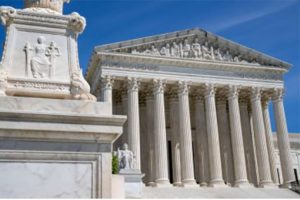Sacramento, CA – After a lower court ruled that punishing people for sleeping on the streets with no alternative available shelter amounts to “cruel and unusual punishment,” the U.S. Supreme Court will take up the case.
Governor Gavin Newsom is applauding the Supreme Court’s review of the case of City of Grants Pass v. Johnson. Lower-court rulings make it harder for cities in the West when there are not enough beds in homeless shelters to prevent people from sleeping on the streets. In a September filing of an amicus brief, Newson urged the Court to clarify that state and local governments can take reasonable actions to address the homelessness crisis, creating health and safety dangers for individuals living in encampments and communities.
“California has invested billions to address homelessness, but rulings from the bench have tied the hands of state and local governments to address this issue,” stated Newsom.
The governor, as well as other Democratic and Republican elected officials struggling to deal with homelessness brought on by rising housing costs and income inequality, are backing the justices’ move to hear an appeal from the city of Grants Pass, in southwest Oregon.
This action comes a day after a panel of the 9th U.S. Circuit Court of Appeals affirmed a lower-court ruling blocking anti-camping ordinances in San Francisco, where Newsom once was the mayor.
A separate 9th Circuit panel ruled in the Oregon case that Grants Pass could not enforce local ordinances that prohibit homeless people “from using a blanket, pillow, or cardboard box for protection from the elements.” The decision impacts nine western states: Alaska, Arizona, California, Hawaii, Idaho, Montana, Nevada, Oregon, and Washington.
The two rulings, similar to a 2018 decision from the 9th Circuit in a case from Boise, Idaho, found that punishing people for sleeping on the streets when no alternative shelter is available amounts to “cruel and unusual punishment” in violation of the Constitution.
Urging the justices to take up the case, elected officials argue the rulings complicate their efforts to clear tent encampments, which have long existed in West Coast cities but have more recently become more common across the U.S.
“The Supreme Court can now correct course and end the costly delays from lawsuits that have plagued our efforts to clear encampments and deliver services to those in need,” added Newsom.
Homeless numbers last year across the nation reached 580,000, driven by a lack of affordable housing, a pandemic that economically wrecked households, and a lack of access to mental health and addiction treatment.

